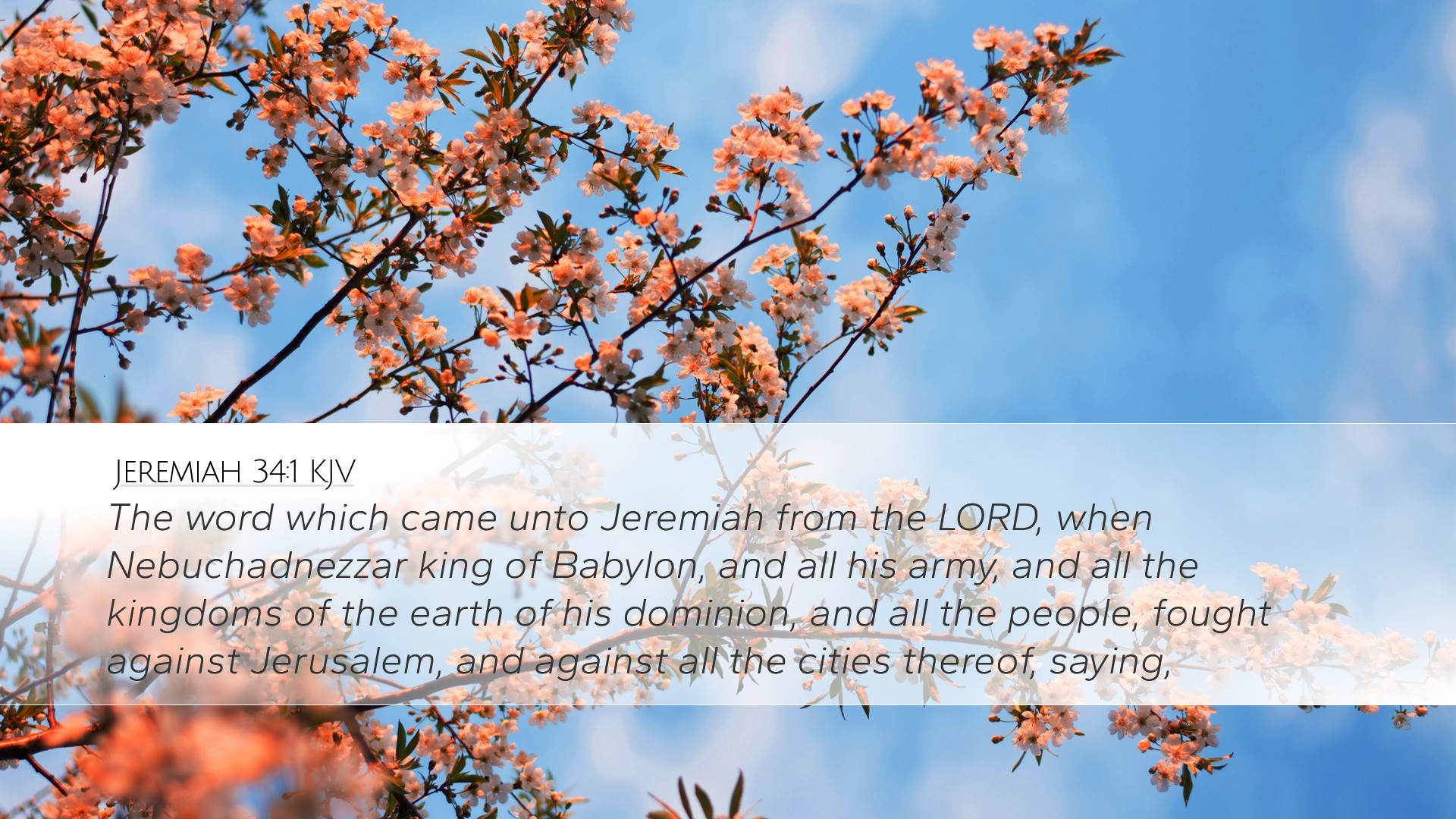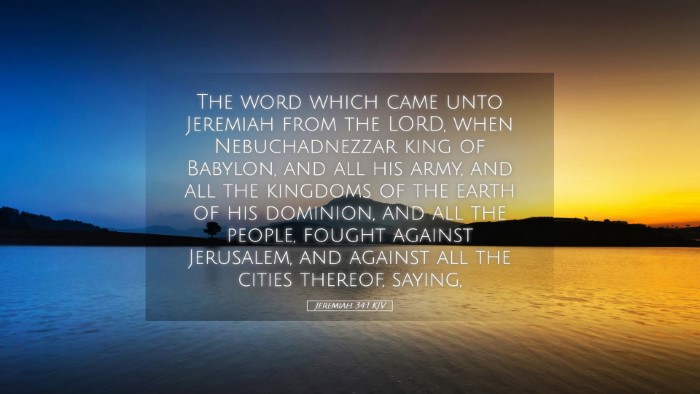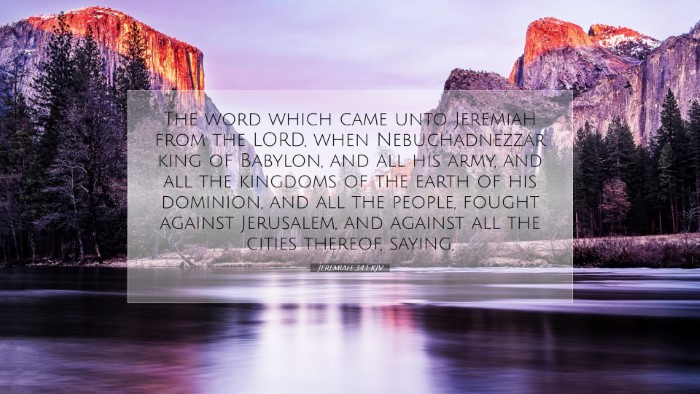Commentary on Jeremiah 34:1
Verse: Jeremiah 34:1
“The word which came unto Jeremiah from the Lord, when Nebuchadrezzar king of Babylon and all his army, and all the kingdoms of the earth that were under his dominion, and all the people, fought against Jerusalem, and against all the cities thereof, saying,”
Introduction
This verse serves as an introduction to a crucial and prophetic facet of Jeremiah's ministry during a time of impending calamity for Jerusalem. It reflects the dire circumstances Israel is facing under the siege of Nebuchadnezzar, reminding us of God’s sovereign will and prophetic voice delivered through His prophets. The insights we derive from historical and theological perspectives provide profound lessons for today's audience, including pastors, students, and theologians.
Contextual Background
The setting for this verse is the late-stage siege of Jerusalem (586 B.C.), during which God’s people would experience profound suffering and judgment due to their disobedience. Understanding the historical context allows for a richer interpretation of the text.
- Historical Context: Jeremiah was a prophet during the last days of the Kingdom of Judah, where his messages often conveyed the divine judgment that would come upon the people for their sins, particularly their idolatry and social injustices.
- Political Context: Nebuchadnezzar’s Babylon was the raging force threatening Judah, representing both a political and spiritual authority contrasting sharply with God’s rule.
Theological Insights
In this verse, we grasp the sovereignty of God amidst the chaos brought by human rulers. Scholars like Matthew Henry highlight that God’s communication through Jeremiah marks His active role in the affairs of nations.
- Divine Communication: The phrase “the word which came unto Jeremiah” emphasizes the importance of prophetic revelation. The prophets do not speak by their own accord but receive divine messages meant for the people.
- God’s Sovereignty: Even in dire circumstances where destructive forces loom, God still maintains authority. The mention of Nebuchadnezzar and his armies illustrates the sovereignty of God as the ultimate agent in history.
- Judgment and Hope: Each pronouncement of impending judgment carries with it the potential for restoration and hope for true repentance.
Commentary Excerpts
Matthew Henry
Henry emphasizes that God’s word is both a warning and a means of understanding the larger narrative of His covenant with Israel. His denunciations and prophetic proclamations are aimed not just at bringing judgment but at calling the people back to Himself.
Albert Barnes
Barnes stresses the impending doom while providing a lens through which to view Nebuchadnezzar’s actions. He perceives this king as an instrument of God’s judgment, acknowledging that God can use even unrighteous rulers to fulfill His purposes.
Adam Clarke
Clarke's commentary explores the significance of the "all the kingdoms of the earth that were under his dominion" aspect, noting how this highlights the reach of Babylonian influence and God's supreme authority over all worldly powers.
Practical Applications
This prophetic declaration serves meaningful lessons for contemporary audiences:
- Awareness of God’s Voice: The importance of listening to the prophetic messages from God that are communicated through various means – Scripture, prayer, and the Holy Spirit.
- Understanding God’s Sovereignty: Recognizing that all earthly powers ultimately fall under God’s dominion can provide comfort and hope in times of crisis.
- Call to Repentance: Like the people of Judah, modern audiences are called to self-examination, to recognize sin, and to seek a return to faithfulness with God.
Conclusion
Jeremiah 34:1 encapsulates a pivotal moment in Israel’s history, fraught with danger yet undergirded by divine authority. The profound insights from Matthew Henry, Albert Barnes, and Adam Clarke enrich our understanding of this text’s significance. They remind us that God’s loving call often comes through uncomfortable truths wrapped in the language of judgment. As we engage with this verse, let us strive to discern what God is communicating to our hearts and communities.


